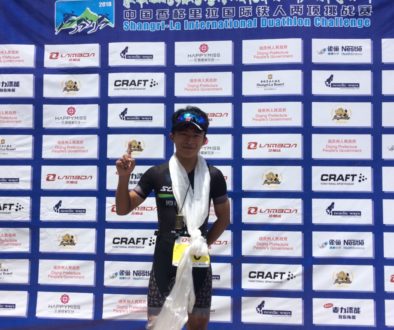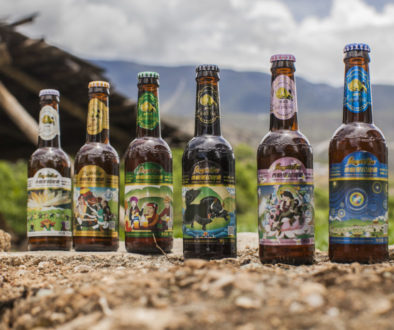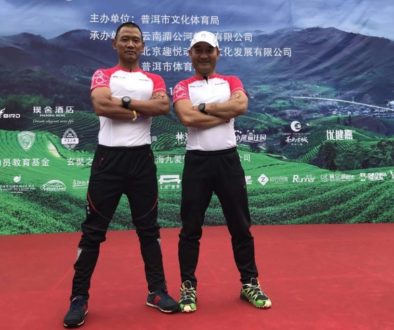Chunxu Hu: Challenge Myself and Never Give Up
Chunxu Hu is the first Chinese athlete who completes all four famous triathlon events in the world, 2014 Escape From Alcatraz Triathlon, 2015 IRONMAN Kona, 2016 Challenge Roth and 2017 Norseman Xtreme Triathlon. What’s more, he is the third Chinese who finishes the IRONMAN in 10 hours, and the fastest Chinese runner in the 42.195km running of IRONMAN. Hu is the leader in Chinese triathlon participants, and was shortlisted for the 2015 CCTV-5 Sports Hero. In 2018, he is the spokesman for the 2018 Shangri-La International Duathlon Challenge. Below is the interview with him.
1. Please give a brief introduction about yourself.
Hello, I’m Chunxu Hu, nearly 30 years old, born in Deyang, Sichuan. I have been a sports journalist since I graduated with the Bachelor’s degree in Journalism. In 2012, I began my triathlon career. Until now, I have joined over 20 Olympic triathlon events, 8 Ironman events and several marathons and cycling races. Now, I am getting the Master’s degree in Beijing Sports University and dwill evote myself in the GlobalTri.
2. Your experience in triathlon is so inspirational. Why do you choose and insist on triathlon?
At the beginning, I began running and cycling in order to lose weight. When triathlon events appeared in Chengdu, I was attracted to challenge myself in triathlon so that I started to learn swimming. When I finished my first triathlon event, I felt it was really interesting and couldn’t help planning other triathlons in China mainland. One year later, I struggled for Ironman and finished it in 2014. From 2015 Ironman Kona to 2017 Norseman Xtreme Triathlon, I never stop making new aims and challenges. It’s the goals that motivate me to go ever forward in triathlon.
3. In triathlon, who do you admire most?
The Collinses from America. With their ideas and organizational skills, the first Ironman was held in Hawaii in 1978. With the development over the past 40 years, the Ironman event has become a popular endurance sport all around the world. Another one is Macdonald from Canada. After a 10-year great effort, the triathlon was added to the Olympic program in Sydney in 2000.
In Chinese, I admire Shangen Shen and Dawo Gu. Both of them are over 70 years old and involved in endurance sports, such as triathlon, marathon and cycling races for many years. Everything needs the testing of time, especially the sports. Triathlon requires much attention and commitment. Different with the professional athletes who devote almost all their time to the sports, it’s not easy for an amateur participant to be passionate about sports and balance his work, family and sports for a long time. They deserve it.
4. In the triathlon, what are your strengths and weaknesses? Do you make up the weakness purposely?
At the beginning, there’s no strength and weakness for me. Actually, the more I trained, the better I did. I trained cycling and running more than swimming so that cycling and running are my strengths and swimming is the weakness. Initially, I would like to make up the weakness in swimming. While when I struggled for Ironman as the main target, I reduced the training in swimming as it takes only 10% time in the whole Ironman schedule. My training time is limited. Training swimming more to make up the weakness will result in less training in cycling and running and bad finish time. As an amateur participant, I should make training plan based on my work and life.
5. In China, the GlobalTri is an influential triathlon platform. You’re successful in the conversion from an athlete to an entrepreneur. Could you share your experience with us?
I started GlobalTri in 2016. Different with the over-optimism at that time, I felt pressure to run a business and was far from successful. I work hard from day to day so that when I recall the past years, there seems to be nothing in special. To build a successful business is a rare event, much harder than Ironman Kona and Norseman Xtreme Triathlon. I’m clear about that. I can accept failure, but never give up. Now I focus on the daily work and try my best to improve the efficiency and create value. I pay more attention to the team relationship and employee development. As long as everyone in the business can work hard and improve themselves, the business will have a better future.
6. Where do you do the daily training? What’s your training intensity and frequency? And how do you promote yourself based on the training data?
My first race in 2018 will be Wuxi Marathon on Mar. 25th. So I focus on running recently. I run 5-6 times a week, swim at least 1 time and ride 2 times. For each race, I’ll make a cyclical training plan, including daily schedule. According to the training data, I can adjust the follow-up training work. For example, if I fell tired (resting heart rate increases, pain caused by inflammation), I will reduce the training intensity, rest and nourish more. When I’m in good shape, I won’t add the training blindly. Even if I miss the training because of the work and other things, I don’t make up it. In a word, plan first, carry it out and adjust smartly.
7. What’s your sports concept?
Science, of course, science.
8. As an experienced athlete, do you have any suggestion for the service of the organizing committee?
These years, more and more beginners come to the triathlon events. The briefing meeting and training before the race are necessary. There are risks in every outdoor race. The organizing committee should pay attention to insurance and emergency service. In the remote area, it’s more convenient if there’s pick-up service from airport or train station to the event venue.
9. Do you have any diet plan before the race? What should be paid attention to?
I’m used to Ketogenic diet, which means high fat and low carbohydrate, while not fit for everyone. Before the race, I think, maintaining your diet habit and intake enough energy is important. Do not change your diet habit suddenly and avoid too much indigestible food, such as protein and cellulose. For the local delicious foods, you’d better taste them after race.
10. Do you have any suggestion for other participants in the upcoming event? Especially regarding race equipment, training plan, training supplies and sports recovery.
I joint Powerman Zofingen, a duathlon race held in Switzerland in 2016. In triathlon race, the first leg is swimming. While in duathlon race, the first leg is running. The running’s strength is so high that your heart rate will increase heavily. In Powerman Zofingen, I ate a little much at breakfast. When run, I felt uncomfortable. In light of these problems, in duathlon race, participants should not eat too much at breakfast and make adequate warm-up before the race. Shangri-La is at high altitude with thin air. Participants had better arrive there at least 3 days in advance to acclimatise to the high altitude. You can run and ride along the track but should not be too tired. About the equipment, just take the normal equipment that you use daily with you. In terms of training plan and supplies, I’ll organize the online training camp with the organizing committee later.
11. How do you evaluate the achievements you have made? What’s your personal goal in 2018?
Every goal I made for myself is higher than my current ability. What I need to do is to try my best to be close to it while I cannot achieve it completely. For example, in Ironman Austria, I aimed at 9 and a half hours but I finished it with 10 hours. Also in many races, I aimed at championship while got the second place. In fact, I’m satisfied with this. I can achieve some goals and be motivated to the next goal all the time. About 2018, I have registered a marathon and an Ironman event until now. Hope to break my personal best.
I have never been a professional athlete. Through the scientific training methods and long-term efforts, I have made some achievements in triathlon. My experience in triathlon impacts on my business concepts deeply. No business can always be prosperous and no people can be born with enterprise genes. The highest towers begin from the ground. Accumulation, not fortune, is the foundation of success. Now the growth of sports industry is accepted to be much slower than that in the past years. Only the enterprise which can improve itself in learning and practice can survive in the severe market environment.
12. What has triathlon brought to you?
Through the triathlon, I met my wife in 2015. At that time, she had been running for 2 years and would like to join the triathlon. She asked me for some questions on the GlobalTri Wechat. Then we trained cycling outdoors and swimming in open water. We fell in love and got married in 2016. Also, triathlon makes me healthy. I spent less than 1,000 Yuan on medical expenses, most of them on medical examination charges. Negative motions, such as anxiety occur to me rarely. I can control it by sports. Triathlon brings a good partner and health to me. One in a good health, happy family and devoted career is admirable. I made it!
13. What do you enjoy doing away from triathlon?
Triathlon and GlobalTri take up so much time that I have little time to do other things. While I read over 30 books last year. I love movie and won’t miss any latest good movie. Also, I’m keen on food and not picky. Recently, I usually cook in the kitchen by myself.
Thank Chunxu for the interview. Wish him can make better achievement in the new year. See you in the training camp.
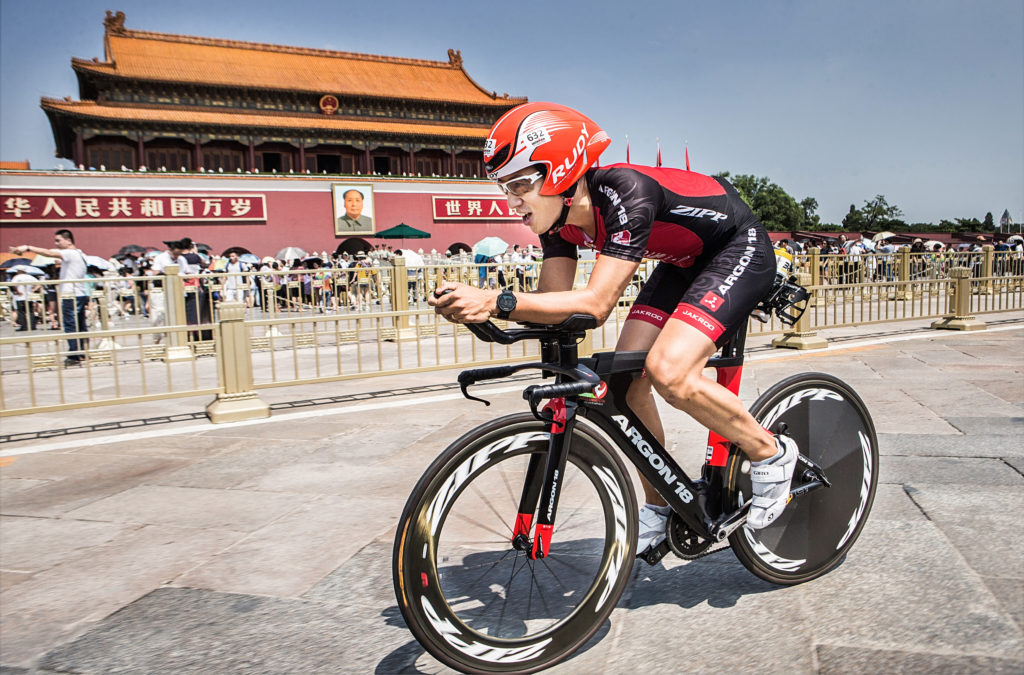
![]()
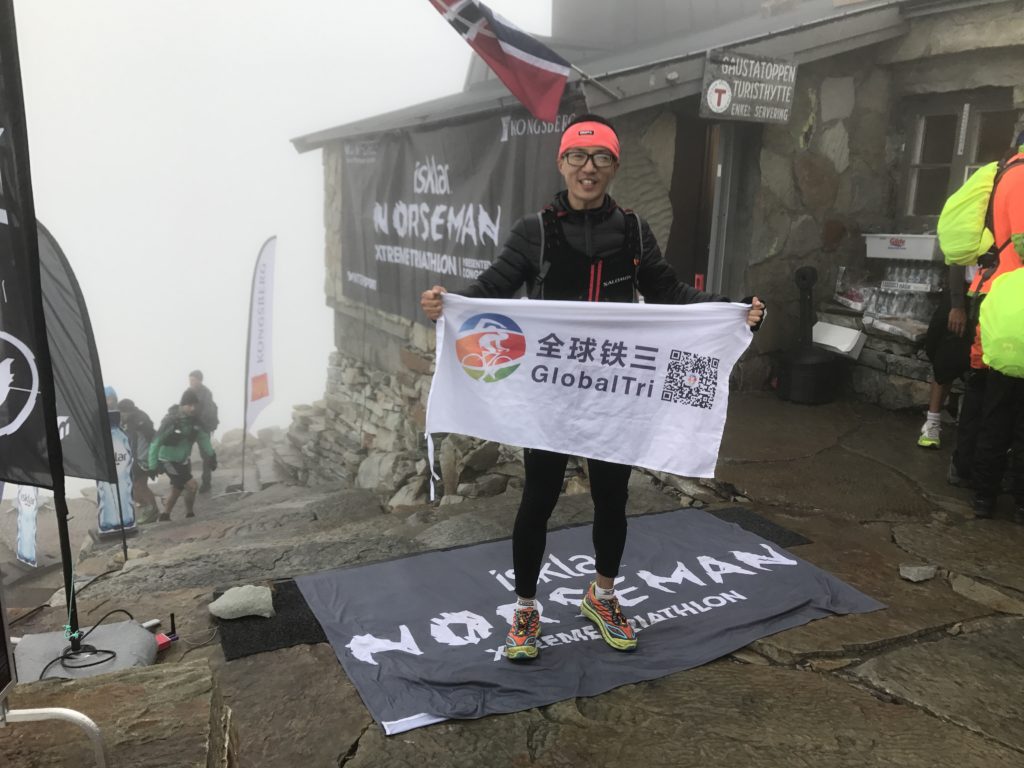
(Chunxu finished Norseman Xtreme Triathlon)
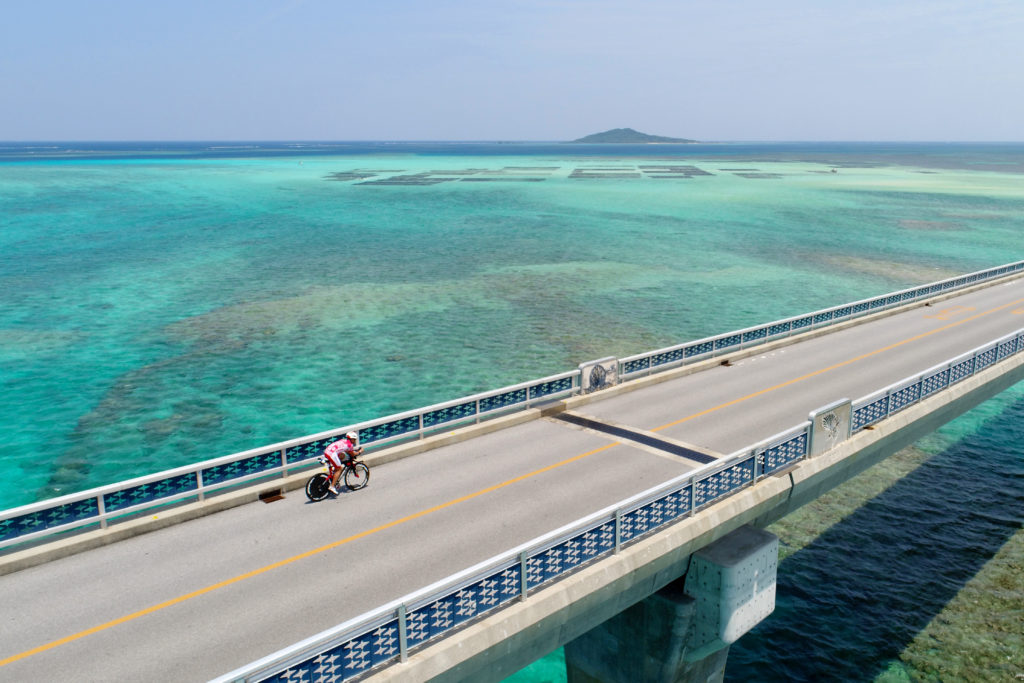
(Chunxu was in a race)
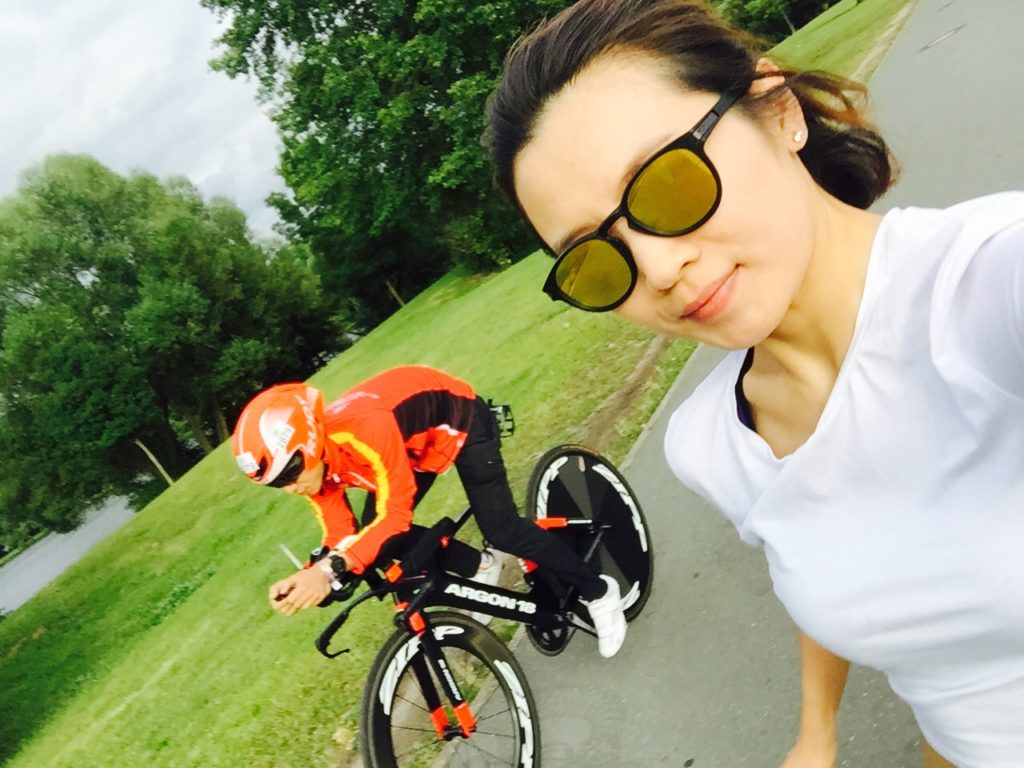
(Chunxu was trainning with his wife)

